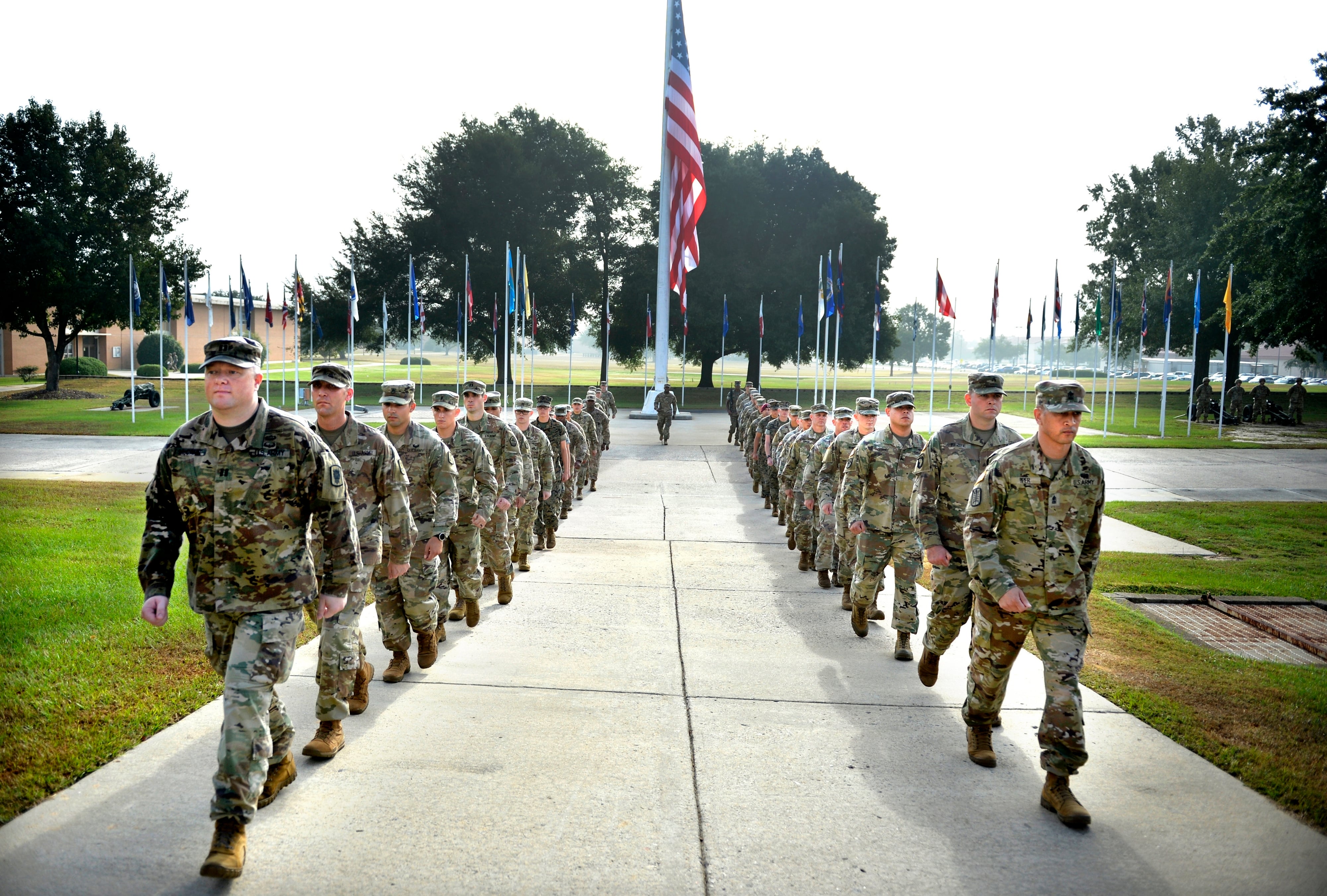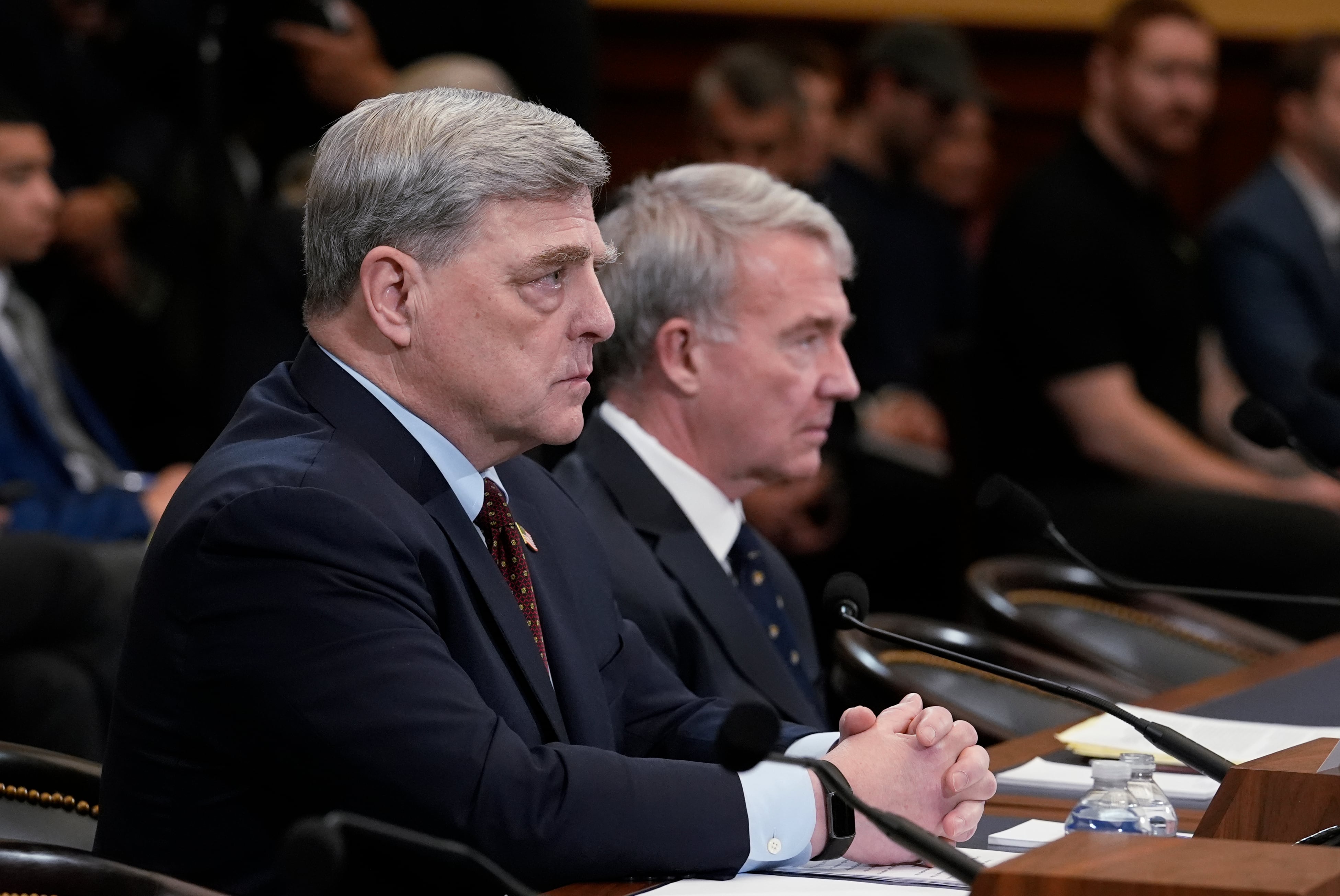An independent panel of a dozen experts has recommended that Defense Secretary Lloyd Austin establish a body outside the chain of command to prosecute sexual assaults. His top uniformed adviser, Chairman of the Joint Chiefs of Staff Army Gen. Mark Milley, is also open to the idea. And Sen. Kirsten Gillibrand, D-N.Y., says that after nine years pushing, she believes she has the votes in the Senate to make it law. But Austin isn’t taking a public position.
He’s waiting for the service chiefs and secretaries to weigh in, and he’s given them until the end of this month. But unlike Milley, Austin is keeping his initial thoughts under tight wraps.
“I think we’ve done things a certain way for a while, and I think we really need to kind of broaden our horizons and kind of look at things differently, and be willing to take different paths to improve things,” Austin told reporters Thursday, during his second Pentagon press conference since taking office Jan. 20.
Asked whether, during his time as secretary, the issue had already come up with the services’ top leaders in a more informal setting, he didn’t answer the question.
“I’ve given them specific guidance in terms of my desire to have them review the recommendation, and then I want their feedback on that,” he told Military Times. “And then we’re going to discuss it.”
Historically, top military leaders have gone before lawmakers and explained that because commanders are responsible for the good order and discipline of their units, that responsibility must be complete and absolute.
“Somebody who is contemplating a sexual assault knows that they’re going to be caught, that they’re going to be prosecuted, and if they’re prosecuted, they’re going to be punished,” Adm. Sandy Winnefeld, then the vice chairman of the Joint Chiefs of Staff, told the Senate Armed Services Committee in 2013. “It’s our strong view that the commander is responsible for that.”
When asked, many a flag and general officer to follow him have given the same rough explanation, until Milley told the Associated Press on Tuesday that he had changed his mind.
“We haven’t moved the needle,” he said Thursday. “That’s the bottom line.”
RELATED

Internal surveys show that roughly 20,000 service members are sexually assaulted each year. If that were the number of casualties in Afghanistan, Milley said, “that’s huge, that’s significant.”
“People like me keeping going behind a microphone saying, we need to do this, we need to do that ― and it hasn’t changed,” he added.
Furthermore, Milley said, surveys have shown that the force has very low confidence in their leaders to handle their sexual assault reports appropriately.
Results have shown that not only are both men and women dubious that their leadership will prosecute assaults, they report that someone in their chain of command is often their assailant, and they are often intimidated in the face of the possibility of retaliation from those leaders.
“We have lost the trust and confidence of those subordinates in our ability to deal with sexual assault,” Milley. “So we need to make a change.”
RELATED

Gillibrand, who has been spearheading this effort from Congress since 2013, has had many such exchanges with senior military leaders during hearings.
In 2019, as Milley’s Army chief of staff successor, Gen. James McConville, submitted to Senate Armed Service Committee questioning during his confirmation hearing, Gillibrand had just been updated on the latest numbers on sexual assaults and their low percentages of charges and convictions.
“What angers me the most, General, is that for the last 25 years, every secretary of defense has told this body, told the American public, ‘We have zero tolerance for sexual assault,’ " she said.
Senior military leaders had repeatedly come before her and sworn they were taking the issue seriously, despite no demonstrable improvements outside of an increase in historically low rates of reporting.
“I am tired of the statement I get over and over from the chain of command: ‘We got this, Ma’am. We got this,’ " Gillibrand said. “You don’t have it. You’re failing us. The trajectories of every measurable are going in the wrong direction.”
Relaunching her bill to take sexual assault prosecutions out of the chain of command on April 29, Gillibrand was joined by a bipartisan group of her colleagues, the effort co-sponsored by Sen. Joni Ernst, R-Iowa, a retired National Guard lieutenant colonel, as well as Sen. Ted Cruz, R-Texas.
In the past, opinions on the matter had fallen almost exclusively on party lines, with Republicans more apt to leave good order and discipline issues up to commanders.
“This really has been an evolution for me,” said Ernst, a sexual assault survivor, said. “While I didn’t [in the past] support taking this decision out of the chain of command, I said I would always keep an open mind. And if we didn’t see things change, then perhaps it would be time to make those changes.
At the same time, the independent review commission, which first met in April, has 90 days to give Austin recommendations on four subject areas, which include accountability, prevention culture and victim support.
Accountability was first on the agenda, with the commission additionally recommending sexual harassment and some hate crimes be referred to an independent prosecution team.
The Pentagon has stressed that those were just an initial set of recommendations and that more are likely to come. Austin has been careful to give his take before talking to the heads of the Army, Navy, Marine Corps, Air Force and Space Force, who will be in charge of implementing any changes.
“I’ve always found, in the short period of time that I’ve been associated with the military,” Austin said, making a joke about his 40-year Army career, “that that’s the best path to follow. To make sure that you have a good dialogue with the stakeholders.”
Meghann Myers is the Pentagon bureau chief at Military Times. She covers operations, policy, personnel, leadership and other issues affecting service members.





